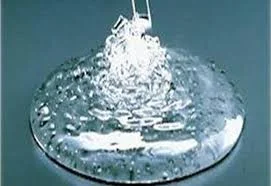Polyisobutylene (PIB) is a versatile polymer with unique properties that make it suitable for a wide range of applications. In this article, we will explore the various properties of polyisobutylene and understand why it is a preferred choice in industries such as automotive, construction, and healthcare. From its molecular structure to its physical and chemical characteristics, we will delve into the fascinating world of polyisobutylene.
I. Molecular Structure
Polyisobutylene is a synthetic polymer composed of repeating isobutylene units. Its molecular structure consists of a long chain of carbon atoms with two methyl groups attached to each carbon. This unique structure gives polyisobutylene its distinctive properties.

II. Molecular Weight and Viscosity
Polyisobutylene is available in a range of molecular weights, which directly affects its viscosity. Higher molecular weight PIBs have higher viscosities, making them suitable for applications that require thicker films or coatings. Lower molecular weight PIBs, on the other hand, have lower viscosities and are used in applications where flowability and ease of processing are important.
III. Impermeability and Gas Barrier Properties
One of the key properties of polyisobutylene is its excellent impermeability to gases. PIB films and coatings act as effective barriers against the permeation of oxygen, moisture, and other gases. This property makes polyisobutylene ideal for applications such as tire inner liners, fuel hoses, and pharmaceutical packaging, where preventing gas permeation is crucial.
IV. Flexibility and Elasticity
Polyisobutylene exhibits remarkable flexibility and elasticity, even at low temperatures. This property allows PIB-based products to maintain their integrity and performance in extreme conditions. For instance, in the automotive industry, PIB-based seals and gaskets remain flexible and resilient, ensuring a reliable and long-lasting seal.

V. Adhesive and Sealant Properties
Polyisobutylene is widely used as a key ingredient in adhesives and sealants due to its excellent adhesive properties. PIB-based adhesives form strong bonds with various substrates, including metals, plastics, and glass. Additionally, PIB-based sealants provide effective sealing against water, moisture, and air infiltration.
VI. Chemical Resistance
Polyisobutylene exhibits high resistance to a wide range of chemicals, including acids, alkalis, and solvents. This property makes it suitable for applications where exposure to aggressive chemicals is expected. PIB-based coatings and linings are commonly used in chemical storage tanks, pipelines, and industrial equipment to protect against corrosion and chemical attack.
VII. Thermal Stability
Polyisobutylene possesses excellent thermal stability, retaining its properties over a wide temperature range. It can withstand both high and low temperatures without significant degradation. This property makes PIB suitable for applications that require thermal insulation, such as refrigeration systems and HVAC components.

VIII. Electrical Insulation
Due to its high resistivity and low dielectric constant, polyisobutylene is an excellent electrical insulator. It is widely used in the electrical and electronics industry for applications such as cable insulation, wire coatings, and electronic components. PIB's electrical insulation properties help prevent electrical leakage and ensure the safe and efficient operation of electrical systems.
Conclusion
Polyisobutylene is a remarkable polymer with a wide range of properties that make it highly versatile and valuable in various industries. Its impermeability, flexibility, adhesive properties, chemical resistance, thermal stability, and electrical insulation capabilities contribute to its widespread use in automotive, construction, healthcare, and other sectors. As technology advances, the demand for polyisobutylene continues to grow, and its applications are expected to expand further in the future.
What Are The Uses of Polyisobutylene (PIB) In Industrial Applications

